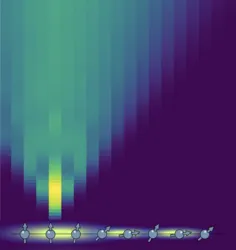Computational Methods in Many-Body Physics (PH2264)

Lecturers: Johannes Hauschild
Teaching Assistant: Marco Lastres, Benjamin Sappler, Anton Romen, Raul Morral Yepes
Lectures: Tue 16:00-17:30
Practicals: Fri 14:00-18:00
This course provides an introduction to numerical techniques used for solving quantum many-body problems. It covers (Quantum) Monte Carlo, Exact Diagonalization, Matrix Product States, Tensor Networks, and Neural Networks. This course is highly interactive. It consists of two hours lectures per week accompanied by four hours of practicals in which the newly acquired techniques will be applied to problems that directly touch upon current research in our groups.
The course will be offered this semester at the announced times and will be based on web conferencing. Further details will be sent by email to all participants registered in campus online. Please sign up online to be able to receive the latest information.
Outline:
I. Introduction
Lattice models
II. Classical Monte Carlo simulations
Metropolis algorithm
Critical slowing down: cluster and loops algorithm
III. Finite size scaling analysis
IV. Exact diagonalization
Exact diagonalization
Sparse matrices and the Lanczos method
Symmetries
Dynamical properties
V. Entanglement and matrix product states
Area law
Scaling in critical systems
AKLT model
Canonical form
VI Matrix product state based algorithms
Time Evolving Block Decimation
Density Matrix Renormalization Group
VII. Tensor product states
Tensor Renormalization
Boundary theories
VIII. Machine Learning
Neural networks
Deep learning
Exercises
Exercises and solutions will be provided on Moodle.
You will be given time to solve the exercises during the Friday tutorials.
To get a bonus for the final exam, show up to the Friday tutorials or send some codes/plots to a TA to prove that you worked on the exercises.
Literature
Introduction to Python, https://lectures.scientific-python.org
Lecture Notes by Anders W. Sandvik, http://arxiv.org/abs/1101.3281
Lecture Notes by Johannes Hauschild, Frank Pollmann, https://arxiv.org/abs/1805.00055
Review on DMRG by Ulrich Schollwoeck, https://arxiv.org/abs/1008.3477
Online book by Michael Nielsen, http://neuralnetworksanddeeplearning.com
Exam
There will be a written exam that takes place on July 28th, 2025, at 2pm. The retake exam will take place on Sept. 29th, 2025, at 2pm.